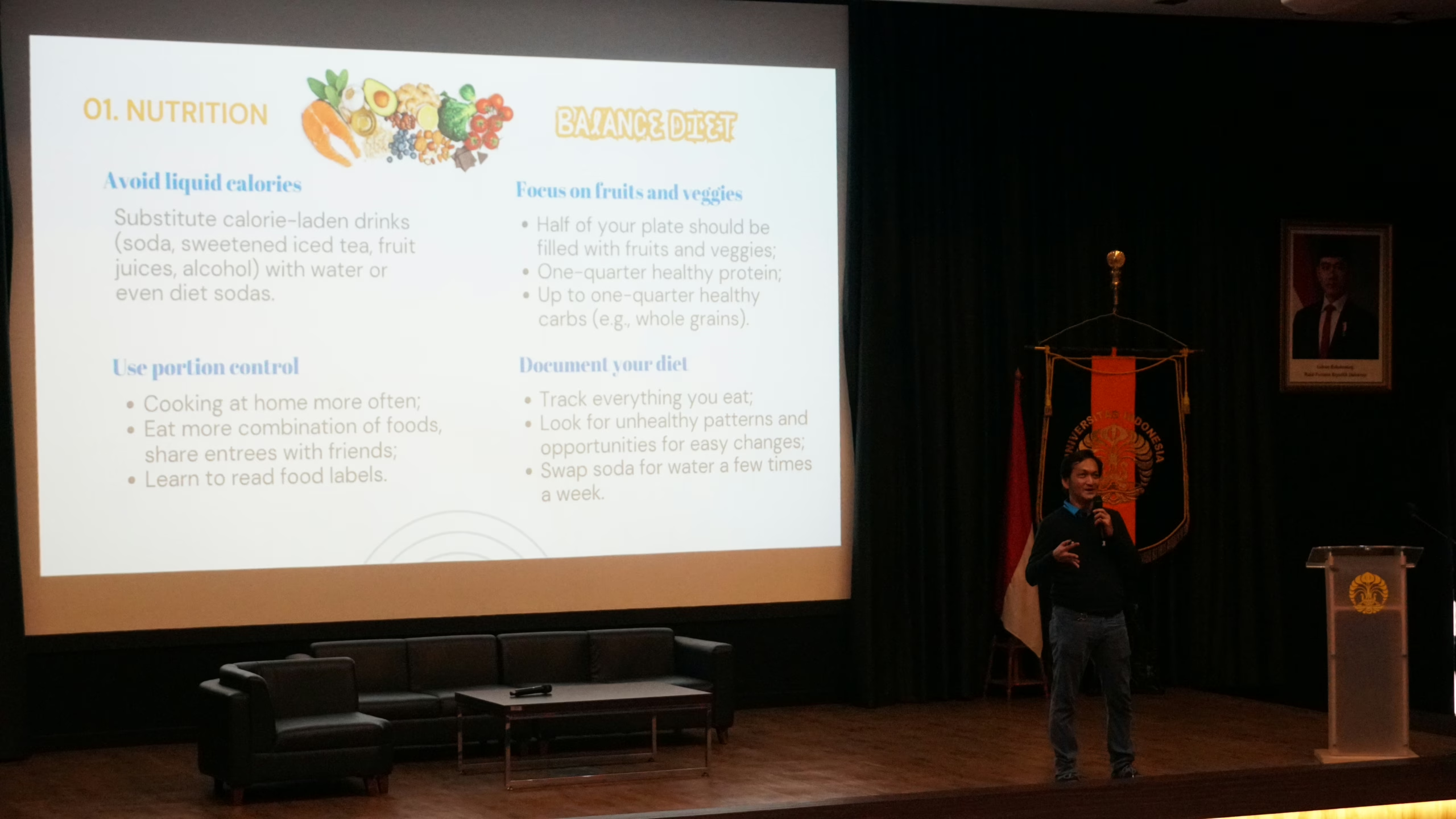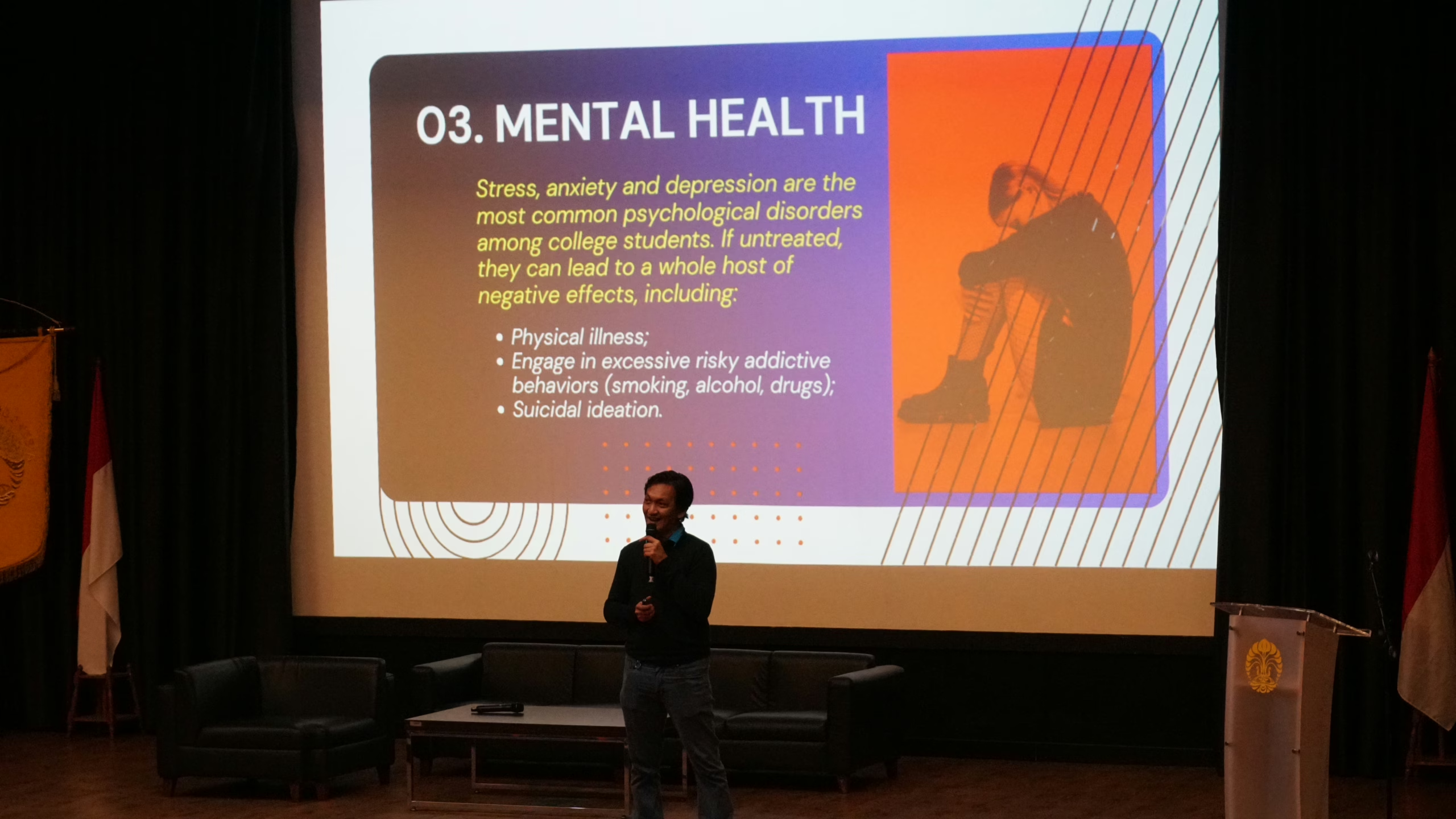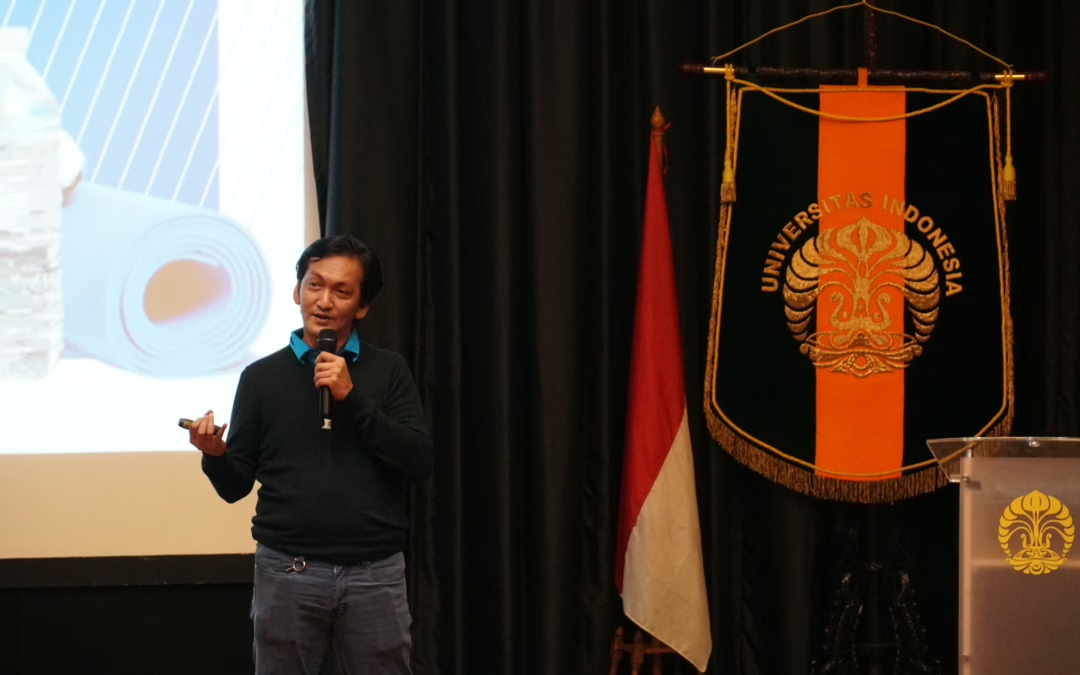Depok-Students are one of the groups vulnerable to health problems, both physical and mental. A study in the United States showed that 51-72 percent of students experience significant weight gain in their first year of college, with an average weight gain of 2-3.5 kilograms. Meanwhile, more than 60 percent of students experience at least one symptom of a mental disorder, including anxiety, depression, and stress due to academic pressure. This situation underscores the need for a holistic approach to maintaining student well-being.
To address this challenge, the Universitas Indonesia (UI) Vocational Education Program held an educational session titled “A Guide to Healthy & Happy College Life,” delivered by Dien Anshari, S.Sos., M.Si., Ph.D., from the UI Center for Health Research. This material was part of a series of Training of Trainers (ToT) activities held on July 16, 2025 for students as agents of change on campus.
Dien emphasized that many students experience changes in their healthy lifestyles after entering college, including uncontrolled eating habits. “The transition to college often leaves students unaware that they have changed their eating habits. Weight gain isn’t just about aesthetics; it can also impact long-term health,” Dien said.
 (Photo: Presentation by Dien regarding a good lifestyle through a healthy diet)
(Photo: Presentation by Dien regarding a good lifestyle through a healthy diet)
Some of the strategies he recommends include replacing sugary drinks with mineral water, paying attention to portion sizes, and increasing your consumption of vegetables and fruits. Furthermore, physical activity shouldn’t be neglected. He believes that exercise isn’t just about body shape, but also about mood. The endorphins released during exercise can help students focus and feel happier.
Additionally, academic pressure, social isolation, and excessive device use also increase the risk of mental health issues in college students. Dien said, “Stress is common on campus. The most important thing is to recognize the signs early and know when to seek help. Counseling or therapy are not signs of weakness, but rather smart steps to maintain mental balance.” Dien also highlighted the importance of digital detox, given that excessive internet use can exacerbate a sedentary lifestyle, disrupt sleep, and hinder social interaction.
Finally, digital literacy is key to building positive networks and accessing relevant resources. Students are encouraged to use technology ethically for learning, collaboration, and self-development. “Students need to understand that the internet is more than just a place for entertainment. The internet can be a learning resource, a space for collaboration, and an arena for building positive networks if used wisely,” said Dien.
Vice Director for Education, Research, and Student Affairs, Deni Danial Kesa, M.B.A., Ph.D, emphasized that the activity reflects UI Vocational commitment to developing students who are not only academically competent but also overall healthy. “Through this training, UI Vocational is committed to supporting the holistic development of students. We also need to encourage their readiness to maintain physical and mental health and build positive social relationships amidst the challenges of the digital age,” Deni said.
 (Photo: Dien explains the importance of mental health for students)
(Photo: Dien explains the importance of mental health for students)
This activity is part of UI Vocational strategic effort to equip students with long-term healthy living skills as a foundation for their success on and off campus. This activity is also one of UI Vocational real contributions to the Sustainable Development Goals (SDGs), specifically point 3 (Good Health and Well-Being) through the promotion of a healthy lifestyle and mental awareness and point 4 (Quality Education) by providing non-formal education that supports character development and life skills.
One student, Muhammad Ihsan Ramadhan, said the information provided by the speaker was very interesting. “Knowledge about healthy lifestyles, such as eating, exercising, managing emotions, and building healthy relationships in this digital age is necessary for us as students,” Ihsan concluded.


